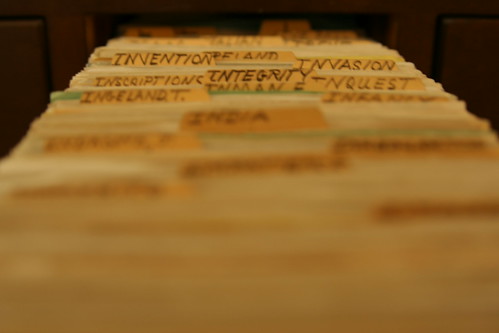
Academic Journals are in the course of rethinking their management, methods, and publication standards. This year saw major panels at the AHA (American Historical Association) and MLA (Modern Language association), largely through the leadership of the Council of Editors of Learned Journals. If they face this transition with courage and ingenuity, journals have the opportunity to plant themselves firmly as pillars of professional utility, scholarly collaboration, and authoritative knowledge as a public utility. Much of it may require thinking in terms of shifting communities and the life of information, and shifting sharply away from current journals' dependence on issue-by-issue websites and pdf-servers like JSTOR.
This conversation commences from the concerns of a real community. Editors of academic journals have been the heroes of professional support processes like peer review for a long time, and they have a brave future ahead of them as they begin to imagine the remaking of the scholarly journal online.
Over the next two weeks, we're offering some tentative principles for rethinking journals by way of sparking conversation. At first, these thoughts will take the form of blog entries like this one, where visitors can add comments at the end of every note. We welcome your reactions -- especially sets of alternative principles or concerns that may have been overlooked. At the end of the week, we'll be integrating the original principles with your comments into a wiki. Wikis, as you probably know from wikipedia, are pretty good at synthesizing the opinion of a group. They're also not much harder to use than Microsoft Word. The wiki will form an evolving, multi-authored document that will have some permanence and the ability to slow-evolve to reflect the diversity of concerns and strategies on the table. The responses you offer here, the wiki, and the long-term conversation will, we hope, produce a useful overview of the diversity of opinions, offering a substantial statement on the profession for use when the CELJ next convenes live.
2 comments:
Looking forward to this conversation, which is not just about media but about the changing nature of scholarly work and scholarly discourse.
Great to have you aboard, Thomas!
Post a Comment